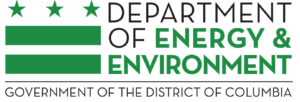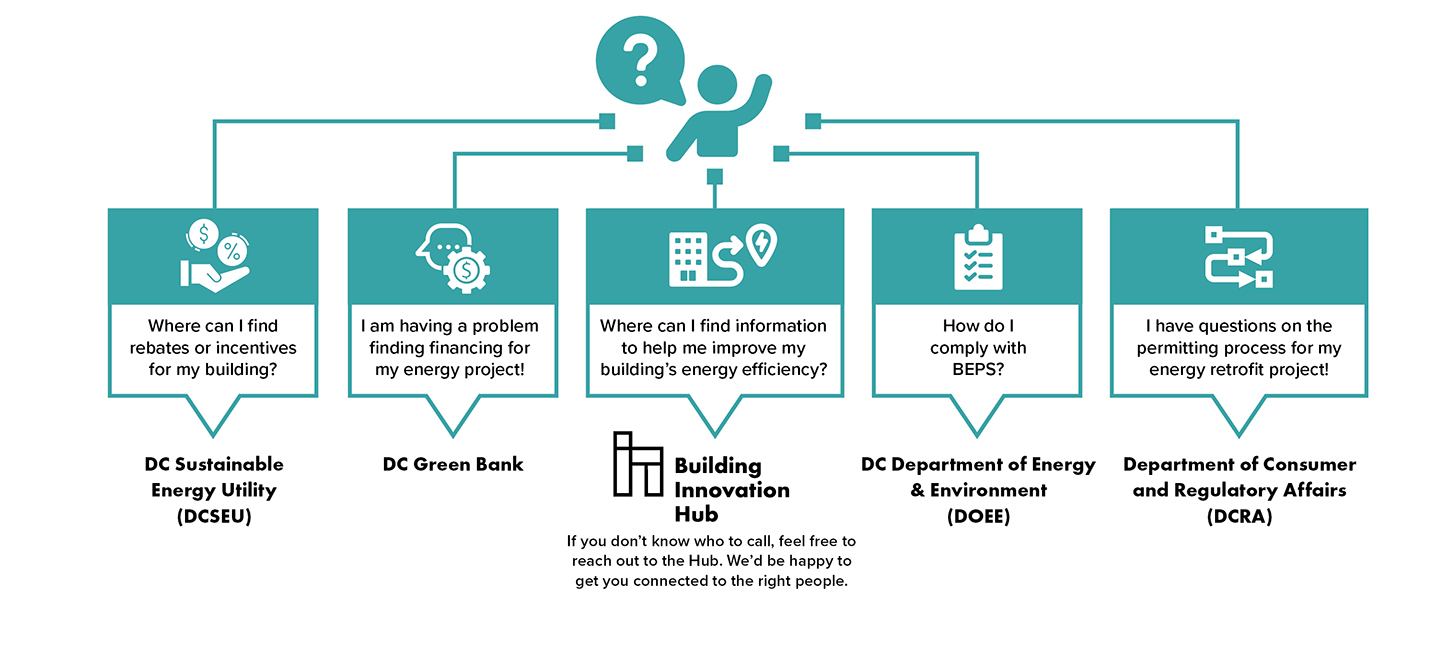The Building Innovation Hub (Hub) helps building industry professionals in and around Washington, DC create and operate high-performing buildings. It is a project of the Institute for Market Transformation (IMT), a nationally recognized nonprofit organization that specializes in driving demand for high-performing buildings.
Our goal for the Hub is to meet the current needs of the building industry while simultaneously pushing it towards the innovative solutions that we will need to build and operate high-performing buildings. To do this, we provide resources and connections to help building owners, operators, designers, contractors, and tenants improve their buildings. We highlight market leaders, educate decision-makers on rising trends, assist in making critical connections, clarify regulatory requirements—such as those from the Building Energy Performance Standards and the new local building codes—and break down barriers to making building improvements with sustained impact. Through this work, we help ensure the District remains a highly competitive market and a leader in sustainable and equitable building practices.
The Hub is part of the Building Performance Partnership (BPP), a growing network of independent energy efficiency hubs across the globe dedicated to reducing the effects of climate change by improving the built environment. With support from both the Building Energy Exchange (BE-Ex) and the Institute for Market Transformation, partner hubs serve their respective regions with customized resources that cater to the needs of their communities while benefitting from the existing resources and expertise of our network.
Our Staff

Theresa Backhus, Director
Theresa (she/her) brings twenty years of experience improving the performance of buildings and landscapes to her role as Director of the Building Innovation Hub, ensuring its mission and strategic vision are executed. Prior to joining IMT, she was a green building consultant, supporting the DMV building industry in navigating policy, code, and certifications. At the U.S. Green Building Council, she was integral to the development of the LEED v4 rating system program. Her past work also includes planning, design, and construction observation in both the public and private sectors. Theresa holds a BLA from Virginia Tech, and an MEM from the Duke Environmental Leadership Program. She is a Registered Landscape Architect, LEED AP, and SITES AP. Read her full LinkedIn profile or contact Theresa at Theresa [at] buildinginnovationhub.org.

Yolanda Bonner, Associate Director of Building Performance
Yolanda possesses 13+ years of facility and operations management experience ranging from a variety of building typologies such as residential, commercial, medical, and local government. Her previous role as the building management lead for all Fire & EMS facilities for the Department of General Services (DGS) led to the reinvention of the maintenance structure between two local government entities, while simultaneously building trusted life long connections and relationships. She is a Certified Property Manager and is currently completing her Construction Project Management Certification. Yolanda also has a background in Accounting and is experienced with the implementation and structure buildout of Salesforce to meet any organization’s needs. Connect with her on LinkedIn or contact Yolanda at yolanda.bonner[at]imt.org.

Mary Thomas, Associate Director
Mary Thomas is Associate Director for the Building Innovation Hub, helping the local building community design, build, retrofit, and operate high-performing buildings in and around Washington, DC. Mary’s responsibilities include events planning, outreach, and resource development to support the success of the Hub.
Prior to joining IMT, Mary spent 15 years in the commercial real estate industry in Washington, DC, managing construction projects for Hines, a global real estate developer, and Clark Construction. At Hines, she managed comprehensive design, permitting, and construction activities on a variety of development projects, navigating complicated stakeholder relationships, tracking and communicating project priorities, and fostering collaboration among all parties to ensure positive outcomes. Mary has in-depth experience across a broad range of project types in the DC area, including residential, office, site civil, and mixed-use development. She has a background in visual and environmental studies, earning a BA from Harvard, and she has been an accredited LEED AP BD+C since 2008. Outside of work, Mary volunteers with a local organization to plant and maintain trees in the DC area. Connect with Mary on LinkedIn or contact Mary at mary[at]buildinginnovationhub.org.

Alexandra Laney, Associate Director of Communications
Alexandra Laney is the primary point of contact for Hub communications. She is the Associate Director of Communications at IMT, responsible for media outreach and digital strategy execution. Alexandra holds an MBA from The George Washington University and a BA from Vassar College. She is also a certified PMP from the Project Management Institute. Prior to joining IMT, Alexandra served in a variety of communications and consulting roles with Booz Allen Hamilton, AES, and NeighborWorks America. Read her full LinkedIn profile or contact Alexandra at alexandra.laney [at] imt.org.

Caitlin M Caplinger, Storytelling Manager
Caitlin M Caplinger (they/them) is IMT’s Storytelling Manager and joined IMT in April 2022. They collaborate with expert team members across programs to ensure that stakeholders understand the impact of IMT’s thought leadership and regulatory work. Caitlin also works to raise the voices of IMT partners and collaborators, as they are vital to achieving IMT’s mission to equitably decarbonize buildings. Caplinger draws from their background as a playwright and performer to craft content that is hopeful, informative, and relevant. They hold a B.A. in Non-Profit Administration and Leadership from Christopher Newport University. Prior to joining IMT, Caitlin worked in marketing and development for several DC-Metropolitan arts non-profit organizations. They are deeply committed to ensuring that people can equitably access and invest in the environment, technology, and the arts. Read their full LinkedIn profile or contact Caitlin at caitlin.caplinger [at] imt.org.
Read more about the Building Innovation Hub’s Founding Director, Lindsey Falasca, here.




